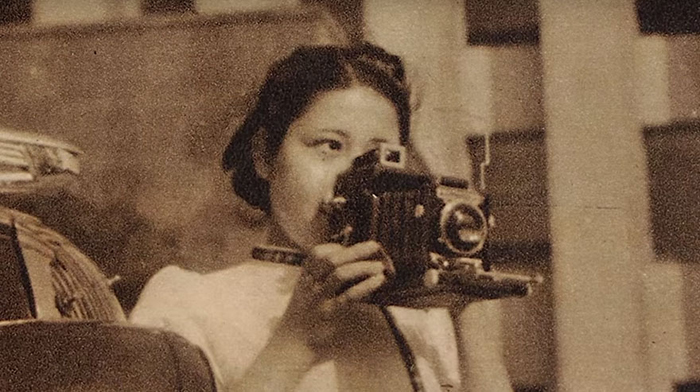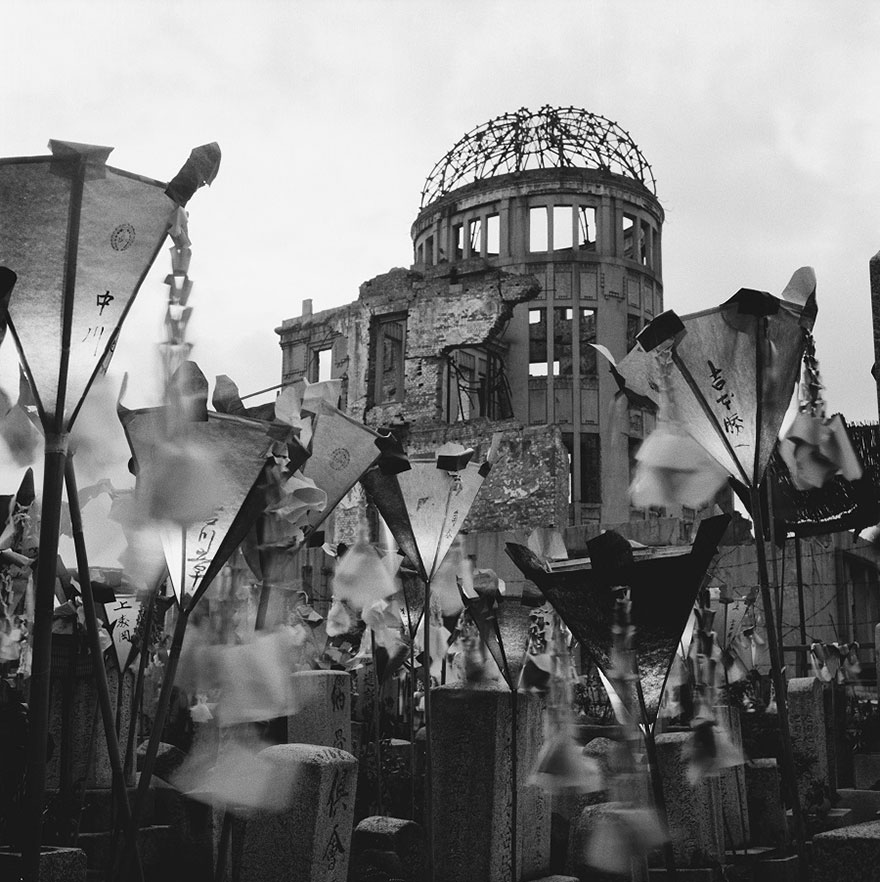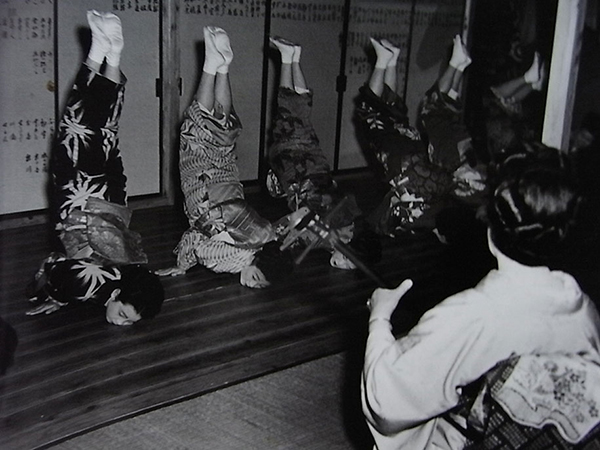
You should never become lazy. It’s essential to remain positive about your life and never give up. You need to push yourself and stay aware, so you can move forward.
— Tsuneko Sasamoto
Sound advice whether one is interested in sustaining a creative practice or remaining vigorous as one ages.
Photographer Tsuneko Sasamoto is an excellent poster child for both. Born in Tokyo in 1914, shortly after the beginning of the first World War, she is Japan’s first female photojournalist and — at 107, its oldest living photojournalist.
Her traditional father thwarted her hopes of becoming a painter, but early encounters with a black-and-white film by Man Ray and the work of Margaret Bourke-White suggested that photography might prove a similarly fulfilling path.
By 1940, she was able to parlay a job as a part-time illustrator on the local news pages at Tokyo Nichinichi Shimbun (now known as the Mainichi Shimbun) into a probationary gig as a shooter, though as a young woman, she was constrained by gender expectations.
Unlike her male counterparts, she was not allowed to document WWII at the front. Instead, she was charged with special interest stories of a patriotic nature and portraits of diplomatic envoys. She deeply resented her professionally mandated uniform — skirts and heels that occasionally hampered her from getting the shot.


Her ambition benefited from a stubbornly defiant streak. An article in The Japan Times details how she weathered discriminatory comments, resisted male family members’ scripts, and, in 1947, piped up to ask General Douglas MacArthur, Supreme Commander of the Allied Powers, if he would grant her a redo when her camera malfunctioned at the ribbon cutting ceremony he was attending.
Other subjects from her eight decades-long career:
Student protesters
The wives of coal miners who were on strike against the then-largest coal mine in Japan
Young women training to be geisha
The Imperial Family
Socialist Party head Inejiro Asanuma the day before his 1960 assassination
A who’s who of Japanese novelists, poets, and artists
The 2011 earth quake and tsunami
And, for her exhibit 100 Women at the Japanese Camera Industry Institute, she included some notable survivors of the Meiji and early Showa eras, such as Queen of the Blues, Noriko Awaya. As Sasamoto recalled:
I photographed her toward the end of her life when she was in her eighties and bedridden. I was one of the few allowed to see her at that time, I think because I was born in the Taisho era (1912-26) and she felt I could understand her…. She kept telling me, ‘I am not formidable.’
Shortly after turning 100, Sasamoto weighed in on digital cameras — their lighter weight made them easy to carry around, but their functions were difficult to understand.
As for her health regimen: maintaining contact with family and friends, a daily piece of chocolate, a glass of red wine every night, and way more red meat than recommended.
Related Content:
Meet Gerda Taro, the First Female Photojournalist to Die on the Front Lines
Visit a New Digital Archive of 2.2 Million Images from the First Hundred Years of Photography
Ayun Halliday is an author, illustrator, theater maker and Chief Primatologist of the East Village Inky zine. Follow her @AyunHalliday.
Meet Tsuneko Sasamoto, Japan’s First Female Photojournalist and Now, at 107, Japan’s Oldest Living Photojournalist is a post from: Open Culture. Follow us on Facebook and Twitter, or get our Daily Email. And don't miss our big collections of Free Online Courses, Free Online Movies, Free eBooks, Free Audio Books, Free Foreign Language Lessons, and MOOCs.


0 Commentaires